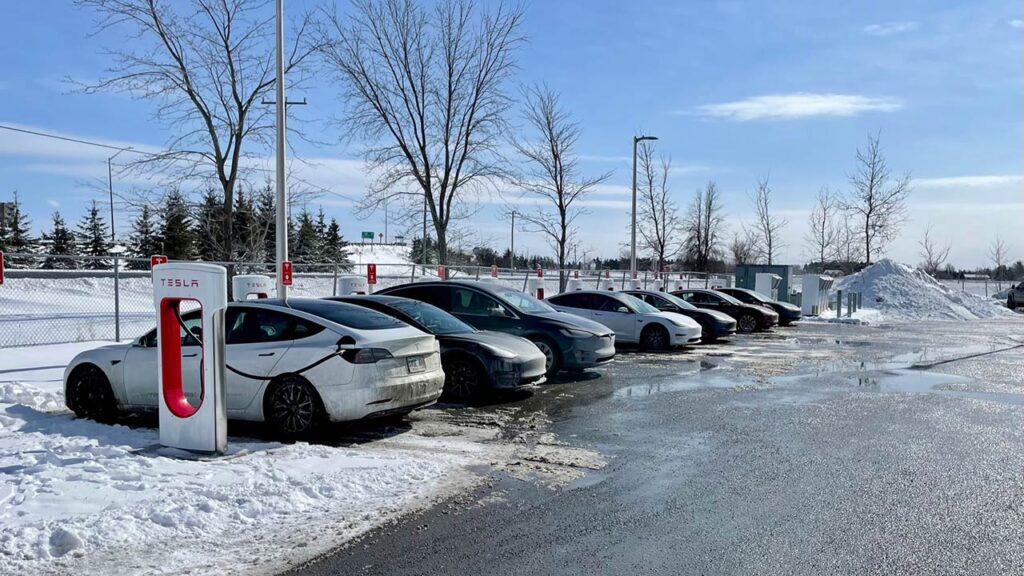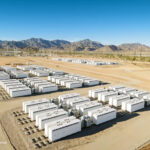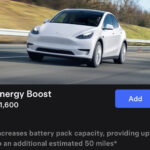A Tesla owner from Ontario, Canada tagged the electric automaker’s CEO Elon Musk in a post yesterday in which he complained of the rising cost of Supercharging in the country.
Unlike any other billion-dollar company CEO in the world, Musk took notice of this tweet and told the Tesla owner he would look into the matter. Within just 3 hours later, Elon Musk got back to him with an update.
“Canada requires charging by the minute vs kWh. We’re working to get that changed,” Musk explained the reason behind the expensive Supercharging costs in Canada.
Harsimran Bansal, the Tesla owner got charged CA$24.20 for a 21-minute Supercharging session. He also said that this cost is comparable to filling up gas in an ICE car.
The costing breakdown in the invoice he received for this session from Tesla:
- 5 min @CA$0.68 per min = CA$3.40
- 16 min @CA$1.30 per min = CA$20.80
The price of per minute Supercharging almost doubles if the session is extended beyond 5 mins. Per kilowatt-hour charging costs are more fair and transparent.
The time-based cost structure can even be more expensive during the peak hours of EV charging. Also, with weather and battery temperature variables at play, it might take less or more time to charge the same amount of battery percentage resulting in varying costs for the same amount of energy consumption.
Therefore, the per-minute or per-hour-based cost structure for electric vehicle charging is unfair and non-transparent.
However, recently there has been an update on Tesla’s Engage platform about the progress of enabling per KWh charging model since many Tesla/EV owners contacted Measurement Canada, the authority responsible for the cost structure control, to make required changes.
To all that previously contacted Measurement Canada in support of fair billing standards, your voice was heard. Measurement Canada has now made this matter a priority and is collaborating with EV industry stakeholders to ensure that EV billing is made transparent and fair for all EV drivers.
Measurement Canada’s role is to protect consumers by ensuring that they pay for what they’re getting. However, the practice of time-based billing, which EV charging operators have had to adopt, does just the opposite. It lacks transparency, it undermines the principles of consumer protection, and it is unfair for EV drivers like you. The fairest and most transparent way to bill EV charging is based on the amount of energy received, measured in dollars per kilowatt hour ($/kWh).
Source: Tesla Engage website.
However, neither Tesla’s Elon Musk nor Measurement Canada has given any concrete timeline as to when this issue will be solved. But Canadians should hope there’s light at the end of the tunnel.

Stay tuned for constant Tesla updates, follow us on:
Google News | Flipboard | RSS (Feedly).
Related:
- Tesla (TSLA) Q2 2024 Earnings Call: Elon Musk talks about Robotaxi, FSD, Optimus, Roadster, Dojo, and the next-gen affordable EV
- Tesla begins the rollout of FSD v12.5 to employees and select external testers (first impressions)
- Tesla (TSLA) wins a multi-billion dollar Megapack deal for battery energy projects in California and Texas
- Tesla (TSLA) raises prices of its flagship Model S and Model X EVs in the US and Canada
- Tesla Model Y RWD owners can unlock 50 miles of extra range for $1,600 via an OTA update
- Elon Musk explains the reason behind the delay of the Robotaxi unveiling event









While in Spain a few years ago, their ev buses were equipped with change out batteries. At the terminal, the discharged battery was automatically removed and a fresh battery installed in minutes. Why can’t this be done with ev cars. All EVs could use the same type of battery.
What should they be at when off peak Hydro Ontario rates are at 8.2 cents per kWh? Tesla surely gets a better rate. My last Supercharger visit was at 52 cents per kWh. Do the math.
I don’t buy Elon’s explanation. Tesla has (or should have) known about this egregious practice. If they didn’t, someone needs to get fired.
Nothing of this magnitude could have happened without Musk knowing, and 90% likely, taking the decision himself.
Where in Canada is $25 “like filling up with gas”?!?!
Maybe for a lawnmower or motorcycle.